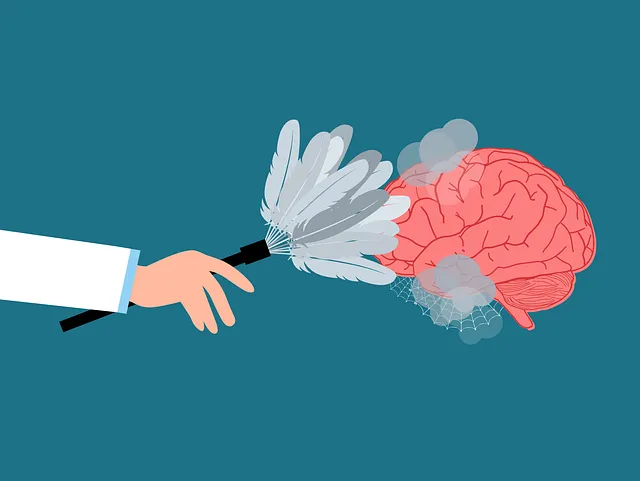Boulder Kaiser Permanente's mental health coverage offers comprehensive care, including assessment, therapy, and support services, to mitigate substance abuse risks by addressing psychological roots of addiction. Through coping skills development, trauma support, and mindfulness techniques, individuals gain tools to manage stress and lead balanced lives. Community outreach programs, crisis intervention guidance, and journaling exercises further empower people to avoid substance use as a coping mechanism and promote overall mental wellness.
In the quest to mitigate substance abuse, a multifaceted approach is imperative. This article delves into comprehensive risk reduction strategies, focusing on understanding the complexities of substance misuse and its associated dangers. We explore the pivotal role of mental health coverage provided by institutions like Boulder Kaiser Permanente in fostering recovery.
Through examining evidence-based prevention methods, intervention techniques, and support systems, we aim to equip readers with insights to contribute to this vital public health effort.
- Understanding Substance Abuse and Its Risks
- The Role of Mental Health Coverage in Risk Reduction
- Strategies for Preventing and Mitigating Substance Abuse
- Effective Interventions and Support Systems
Understanding Substance Abuse and Its Risks

Substance abuse is a complex issue that involves the harmful use of drugs or alcohol, leading to significant impairment in an individual’s daily functioning and overall well-being. It’s crucial to understand that this is not merely a personal choice but a condition with far-reaching consequences. In Boulder, Kaiser Permanente’s mental health coverage offers valuable resources for those struggling with addiction. This coverage provides access to comprehensive care, including assessment, treatment, and support services tailored to address the unique needs of each individual.
The risks associated with substance abuse are multifaceted, impacting not just the user but also their family, community, and society at large. Short-term effects can include impaired judgment, coordination issues, and increased risk of accidents or injuries. Long-term consequences may lead to severe health problems, such as organ damage, mental health disorders, and even death. Coping Skills Development and Trauma Support Services play a pivotal role in helping individuals navigate these challenges. The Mental Wellness Podcast Series Production offers educational content and inspiring stories, shedding light on recovery journeys and effective strategies for maintaining mental wellness.
The Role of Mental Health Coverage in Risk Reduction

Boulder Kaiser Permanente mental health coverage plays a pivotal role in substance abuse risk reduction by addressing underlying psychological issues that often contribute to addiction. Comprehensive mental health services, including therapy, counseling, and support groups, empower individuals with coping skills development. This involves learning mindfulness meditation techniques to manage stress, anxiety, and depression, which are common triggers for substance abuse. By fostering resilience building, these programs help individuals cope with life challenges in healthier ways, reducing their reliance on substances as a coping mechanism.
The integration of mental health coverage within healthcare systems like Kaiser Permanente Boulder ensures that patients receive holistic care. This approach recognizes the intricate link between mental and physical well-being. By providing access to specialized services, these programs encourage individuals to confront and overcome psychological barriers, thereby lowering their vulnerability to substance abuse. Ultimately, this comprehensive approach to risk reduction equips individuals with the tools necessary to lead healthier, more balanced lives.
Strategies for Preventing and Mitigating Substance Abuse

Substance abuse prevention starts with understanding risk factors and implementing proactive strategies. Boulder Kaiser Permanente mental health coverage offers valuable resources for individuals seeking support. One effective approach is crisis intervention guidance, which equips people with tools to handle high-risk situations and make healthier choices. By fostering open conversations about mental wellness through mental wellness journaling exercise guidance, individuals can identify triggers, process emotions, and develop coping mechanisms, all essential components of risk reduction.
Community outreach program implementation plays a crucial role in connecting vulnerable populations with necessary support services. Engaging in these initiatives not only raises awareness but also provides platforms for education, peer support, and access to treatment options. Integrating these strategies into community efforts can significantly mitigate substance abuse, promoting mental wellness and overall well-being among residents.
Effective Interventions and Support Systems

Effective interventions and support systems play a pivotal role in mitigating substance abuse risks. Organizations like Boulder Kaiser Permanente offer comprehensive mental health coverage, integrating specialized services tailored to address addiction and its underlying causes. This includes access to therapy, counseling, and peer support groups that foster resilience and coping mechanisms.
The implementation of empathy-building strategies within these support systems is crucial. Crisis intervention guidance equips individuals with immediate tools to navigate challenging situations, while promoting self-care routine development for better mental health encourages proactive wellness. These holistic approaches not only reduce the risk of substance abuse but also empower individuals to lead more balanced and fulfilling lives.
Substance abuse poses significant risks, but with comprehensive strategies like those offered by Boulder Kaiser Permanente’s mental health coverage, we can effectively prevent and mitigate these issues. By prioritizing mental well-being and implementing targeted interventions, communities can create a supportive environment that reduces substance abuse. This holistic approach not only benefits individuals but also fosters a healthier, safer society.





